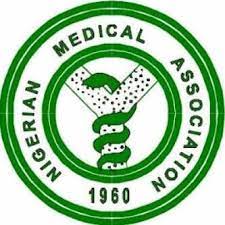The Association of Nigerian Private Medical Practitioners (ANPMP) has said it fully supports the Nigerian Medical Association’s (NMA) plan to go on strike if the Federal Government does not fix major problems in the healthcare sector.
On July 2, 2025, the NMA gave the Federal Government a 21-day deadline. This was in response to a new circular from the National Salaries, Incomes and Wages Commission (NSIWC), issued on June 27, 2025. The circular suggested changes to allowances for federal medical and dental officers. The NMA rejected it, calling it unfair and saying it went against past agreements made in 2001, 2009, and 2014.
In a joint press release on July 6, 2025, ANPMP leaders, Dr. Kay Adesola and Dr. Gbadebo Adebiyi, urged the government not to wait until the last moment to start negotiations, as it often does before a strike.
They said they fully support the NMA’s stance. As active members of the NMA leadership, they have seen the many honest efforts made to prevent strikes through talks and advocacy. Sadly, they said, those efforts were ignored, and the new circular has made things worse in an already struggling healthcare system.
ANPMP warned the government not to wait until the 20th day of the NMA’s 21-day deadline before taking action. They said this is a serious situation that needs urgent attention. Delays, they said, will only make things harder for everyday Nigerians.
The group described Nigeria’s healthcare system as being in a very bad state. Many skilled health workers are leaving the country because of poor working conditions. As a result, hospitals and clinics are short-staffed. The doctors who stay are overworked and poorly paid. Young doctors are quitting, while older ones are being pushed too hard or forced into early retirement.
ANPMP stressed that public and private hospitals are closely connected. If public doctors go on strike, it will also hurt private care, causing major problems for patients. They warned that strikes often lead doctors to leave the country for good, which is a big loss since Nigeria already has too few health workers.
They also criticized the government for not investing enough in healthcare, unlike more developed countries that make health and education top priorities. They said 9 out of 10 Nigerian doctors are now planning to leave or already looking for jobs abroad because the government isn’t doing enough.
Lastly, ANPMP urged the government to strengthen leadership not just in teaching hospitals but also in important health agencies like the National Health Insurance Authority (NHIA) and the Medical and Dental Council of Nigeria (MDCN). They said good leadership is key to making the healthcare system work better.


